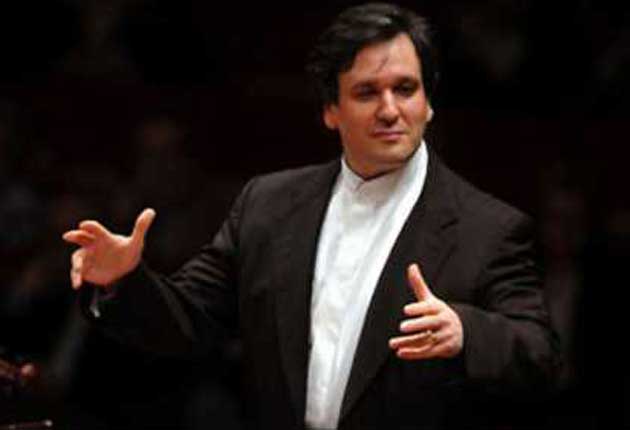Verdi Requiem, Royal Opera House, London

Your support helps us to tell the story
From reproductive rights to climate change to Big Tech, The Independent is on the ground when the story is developing. Whether it's investigating the financials of Elon Musk's pro-Trump PAC or producing our latest documentary, 'The A Word', which shines a light on the American women fighting for reproductive rights, we know how important it is to parse out the facts from the messaging.
At such a critical moment in US history, we need reporters on the ground. Your donation allows us to keep sending journalists to speak to both sides of the story.
The Independent is trusted by Americans across the entire political spectrum. And unlike many other quality news outlets, we choose not to lock Americans out of our reporting and analysis with paywalls. We believe quality journalism should be available to everyone, paid for by those who can afford it.
Your support makes all the difference.Who knows if it really makes a difference or not when Verdi's Requiem is performed in the opera house but Antonio Pappano's vivid performance for the Royal Opera certainly had the whiff of theatricality about it. Churchy it was not – though you might imagine that the Royal Opera Chorus had been advised that their murmured repetitions of the words Requiem aeternam at the outset must sound almost indivisible from the mournful cello descent, as if emanating from deep inside some dark Italian cathedral.
But why should any of this be surprising? Pappano lives in this theatre, it is that special place where operatic dramas come alive for him – and Verdi's Requiem is nothing if operatic. As fiery-tongued trumpets rained down their forbidding fanfares from the second tier boxes heralding the Day of Wrath you half expected to see the chorus with arms outstretched imploring deliverance from the storm at the opening of Otello. Associations die hard in this theatre. Indeed, Pappano's soprano Micaela Carosi seemed to imagine she was Tosca during the Libera Me, such were her diva-like gestures of heartache and supplication.
She was the only Italian among soloists exclusively from Eastern Europe and though the vocal personalities were big and distinctive and sometimes not such a perfect blend, Pappano had them all phrasing like Italians, though he couldn't persuade his tenor Piotr Beczala to sing a honeyed mezza voce in the Offertorio's "Hostias". That began with an unfortunate bump because this lusty singer, thrilling in full voice, doesn't appear to have a head-voice for those quiet and high-lying confidences.
The imperious Olga Borodina impressed with that fabulous colour and a quietly chilling artistry. Best of all, though, was the sensational bass, Ildar Abdrazakov, who has just about everything – imposing sound, beautiful legato, oodles of finesse. And Carosi, aka Tosca? Well, I love the plangent colour and she has big temperamental notes which more than dominate the ensemble – but those seraphic refinements elude her and everything floated above the stave is hit and miss. But no one could accuse her of short-changing us on feeling, or Pappano on drama: that pause before the return of the Dies Irae was positively nerve-wracking.
Join our commenting forum
Join thought-provoking conversations, follow other Independent readers and see their replies
0Comments